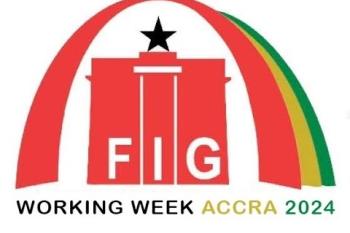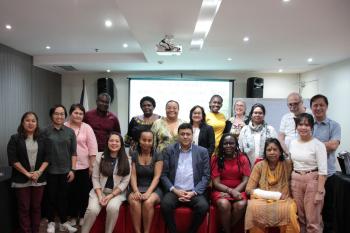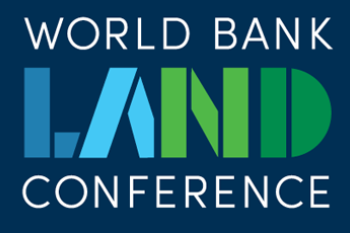New partnerships and perspectives for the Arab Land Initiative: the outcomes of an induction, capacity development and planning workshop
An induction workshop for capacity development and planning for the Arab Land Initiative has successfully taken place from 1st to 6th February 2020 in Cairo, Egypt. It was the first event that brought together the newly contracted partners implementing the different areas of work of the BMZ-funded “Arab region programme on good land governance in support to inclusive development, peace and stability”. The event was hosted by the Urban Training & studies Institute (UTI) in collaboration with GLTN and UN-Habitat at the Housing and Building National Research Center (HBRC).
The meeting was attended by 30 participants – over half female – from GLTN, UN-Habitat, the World Bank, the German Corporation for International Cooperation (GIZ), the Arab Union of Surveyors, International Land Coalition , Habitat International Coalition, and from the implementing partners, including NGOs, research institutes and governmental organisations (UTI, Egypt, Arab Group for the Protection of Nature, Jordan, the Union of Agricultural Work Committees, Palestine, ISTIDAMA, Sudan, the Lebanese Center for Policy Studies, Lebanon and the International Youth Council Yemen).
The five-days event was structured in open discussions, including trainings (provided by GLTN/UN-Habitat, ILC and Habitat International Coalition), presentations and group work. A key contribution to the event were the implementing partners’ presentations of their respective areas of work, their methodologies and approaches as well as their work plans for the following topics: land and conflict, monitoring land governance and land tenure security, land, women empowerment and socio-economic development, land, natural resources and climate change, land professionals, land-related legal frameworks and the role of the civil society in land governance. The participants had the opportunity to meet the ’Arab Land Initiative's Reference Group’ whose role is to provide support throughout the implementation phase. These reference group members and experts commented the presentations and contributed to a better understanding of land governance based on global, regional and country level examples.
Based on improved collaboration and a strengthened network among the partcipants, a broader action plan of the programme was defined. A list of references and contacts of experts and practitioners was created to provide further support for the partners throughout the implementation of their work.


